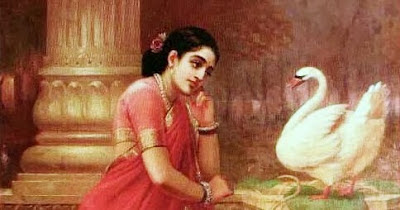Rūpa Gosvāmī’s Dūta-kāvyas: (4) Separation in Rūpa Gosvāmī's writings

As we have seen, the dūta-kāvya genre is everywhere concerned with the theme of love in separation. Love in separation has a long tradition not only in secular Sanskrit poetry, but also in the Vaiṣṇava religious literature. [1] For the Gauḍīya Vaiṣṇavas, of course, Caitanya Mahāprabhu as described by Kṛṣṇadāsa Kavirāja is a living symbol of the intensity of divine love in separation. For the Gauḍīya Vaiṣṇava practitioner, separation or viraha is the devotional mood by which one attains Kṛṣṇa. Such worship of Kṛṣṇa in separation is said to be the contribution of Mādhavendra Purī, the guru of Caitanya Mahāprabhu's guru . Bhaktivinoda Ṭhākura writes, “the seed of all the religious doctrines of Caitanya Mahāprabhu can be found in the following verse attributed to Mādhavendra Purī, spoken in the mood of a gopī separated from Kṛṣṇa].” [2] ayi dīnadayārdra nātha he, mathurānātha kadāvalokyase / hṛdayaṁ tvad-aloka-kātaraṁ dayita bhrāmyati kiṁ karomy aham // O l...

